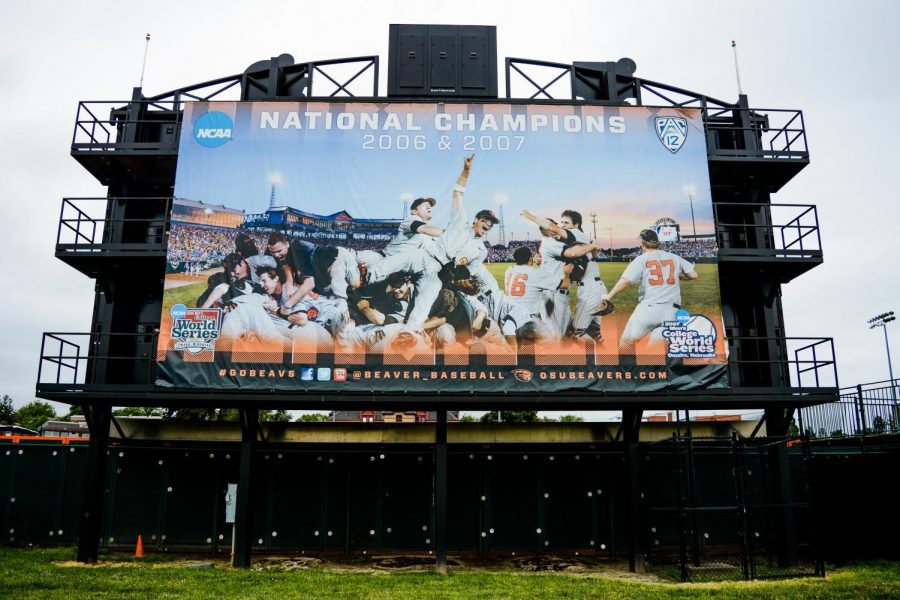Opinion: Legalized sports betting is good for NCAA revenue
June 5, 2018
The Supreme Court made the decision to allow states to individually legalize and regulate sports betting as they please, in a 6-3 ruling.
Professional sports teams are excited about this ruling and are expecting to double their value. However, the NCAA has been resisting the legalization of sports betting for years, in worry that it will compromise the integrity of the game.
“I don’t think there will be much of an impact early on with the NCAA sports,” sophomore, Rab Bowers said.
Although Bowes does believe as time progresses the NCAA will face some complications involving betting on college sports.
If regulated carefully though, legal sports betting could bring a plethora of new revenue to the NCAA, schools and sports teams alike.
Prior to the ruling made on May 14, there had been a federal ban on sports betting since 1992. New Jersey had been fighting that ban since 2011.
Now, seven years later, the Supreme Court has finally decided that prohibiting states from sports betting was unconstitutional and actually violates the 10th amendment. This amendment states that any powers not granted to the federal government, by the constitution, must be granted to the state governments.
“I agree with the Supreme Court rule because each state should have the decision to make. The people that live in the state should ultimately decide,” Bowers said.
Chris Christie, a former governor of N.J., originally filed the lawsuit that has been processing for the last several years. New Jersey in particular, was pushing for the legalization of sports betting, while Nev., Del., Mont. and Ore. were states that got grandfathered in.
Even after Christie’s time in office, the state of N.J. had pushed to get this law passed in order to bring new revenue to states across the country.
This ruling has created a huge wave of excitement not just for sports teams, but for sports gaming associations as well. Especially online ones, such as Draftkings and Unikrn, who have publicly stated their approval of this ruling and how it will benefit them and the nation immensely.
“Everybody’s gambled for a long time, it’s not a new industry,” Mark Cuban, Dallas Mavericks owner and Unikrn Gaming co-founder, said in an interview with CNBC.
Many have been gambling with sports as a part of the underground economy for a long time. However, that economy now has the opportunity to surface with regulation and bring revenue to states.
Cuban, although excited about the Supreme Court’s ruling, is urging states to act carefully with this.
“If states are smart, they’ll work together and come up with a single solution, so that they all get tax revenue from it. They all can deal with the social element of helping gamblers anonymous and helping people not get overwhelmed by this,” Cuban said, “But if they try and do it on their own, then you’re going to see all kinds of issues and you’re going to see winners and losers in each state.”
Although it’s not a question professional sports teams will benefit vastly from this legalization of sports betting, the NCAA is the most interesting sports league in this situation.
Now that the Supreme Court has made their final ruling, the NCAA is requesting federal regulation.
“While we recognize the critical role of state governments, strong federal standards are necessary to safeguard the integrity of college sports and the athletes who play these games at all levels,” NCAA president Mark Emmert said in a statement on the organization’s website after the Supreme Court’s ruling.
For years now, there have been debates over whether collegiate athletes should be getting paid. If the NCAA does decide to reap the benefits of legal sports betting they would be generating tons of new revenue, along with the schools.
Although that revenue could prove to be beneficial, the NCAA is still worried that sports betting will tamper with the integrity of the games and their players.
“The wellbeing of our student athletes and the integrity of competition could be compromised. There is susceptibility to potential inducements around point shaving. Additional resources would likely need to be put in place to augment our compliance capabilities,” Oregon State University athletic director, Scott Barnes said in an article from the Oregonian.
With all of the excitement in the air surrounding the recent legality of state regulated sports betting, it will be interesting to see if the NCAA caves. If they do, college sports teams, universities and the athletes themselves, could be getting rich fast.

















































































![Newspaper clipping from February 25, 1970 in the Daily Barometer showing an article written by Bob Allen, past Barometer Editor. This article was written to spotlight both the student body’s lack of participation with student government at the time in conjunction with their class representatives response. [It’s important to note ASOSU was not structured identically to today’s standards, likely having a president on behalf of each class work together as one entity as opposed to one president representing all classes.]](https://dailybaro.orangemedianetwork.com/wp-content/uploads/2025/03/Screenshot-2025-03-12-1.00.42-PM-e1741811160853.png)
























